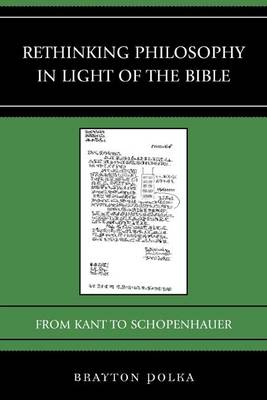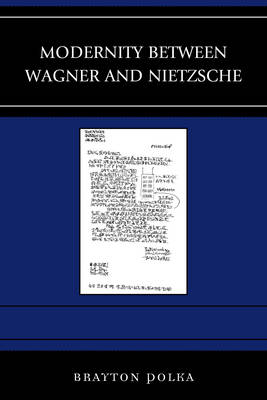Graven Images
2 total works
Rethinking Philosophy in Light of the Bible analyzes the ideas that are central to the philosophy of Kant, Hegel, and Kierkegaard in order to show that they are biblical in origin, both ontologically and historically. Brayton Polka argues that Schopenhauer has an altogether false conception of the fundamental ideas of the Bible-creation, the Fall of Adam and Eve, and covenantal love-and of Christianity, which leaves his philosophy irredeemably contradictory, as he himself acknowledges. The aim, then, is to show that our modern values, the values that constitute modernity, are biblical in origin. It is only when we come to understand that modernity is biblical from the beginning and that the Bible is modern unto the end that we are able to overcome the opposition, so evident today, between philosophy and theology, between reason and faith, and between the secular and the religious. Polka makes central the distinction that Kierkegaard draws between Christianity and Christendom: Christianity represents the coming into historical existence of the single individual; Christendom represents Christian values that are rationalized in pagan terms. As Kierkegaard shows us, if God has always existed eternally, then he has never existed eternally, then he has never come into historical existence for the single individual. The distinction between Christianity and Christendom is the distinction not between faith and reason, but between truth and idolatry. While theology and philosophy each represent the truth of Christianity, Schopenhauer's idolatrous concepts of faith, no less than of reason, represent Christendom.
Modernity between Wagner and Nietzsche analyzes the operas and writings of Wagner in order to prove that the ideas on which they are based contradict and falsify the values that are fundamental to modernity. This book also analyzes the ideas that are central to the philosophy of Nietzsche, demonstrating that the values on the basis of which he breaks with Wagner and repudiates their common mentor, Schopenhauer, are those fundamental to modernity. Brayton Polka makes use of the critical distinction that Kierkegaard draws between Christianity and Christendom. Christianity represents what Nietzsche calls the faith that is presupposed in unconditionally willing the truth in saying yes to life. Christendom, in contrast, represents the bad faith of nihilism in saying no to life. Polka then shows that Wagner, in following Schopenhauer, represents Christendom with the demonstration in his operas that life is nothing but death and death is nothing but life. In other words, the purpose of the will for Wagner is to annihilate the will, since it is only in and through death that human beings are liberated from life as willfully sinful. Nietzsche, in contrast, is consistent with the biblical concept that existence is created from nothing, from nothing that is not made in the image of God, that any claim that the will can will not to will is contradictory and hence false. For not to will is, in truth, still to will nothing. There is then, Nietzsche shows, no escape from the will. Either human beings will the truth in saying yes to life as created from nothing, or in truly willing nothing, they say no to life in worshiping the God of Christendom who is dead.

